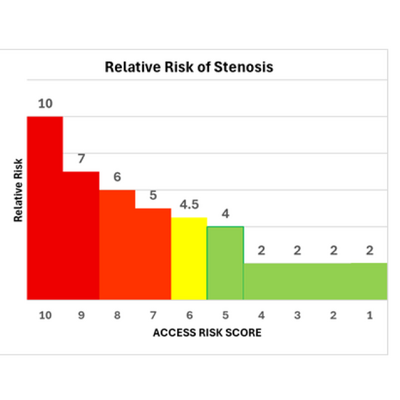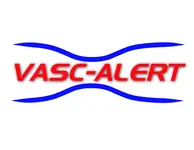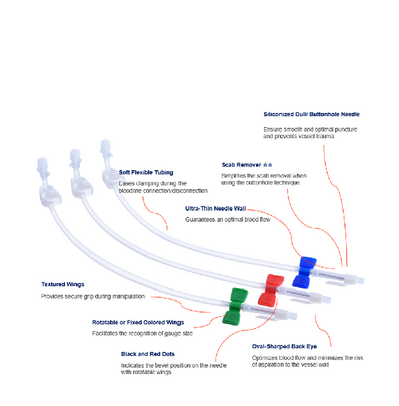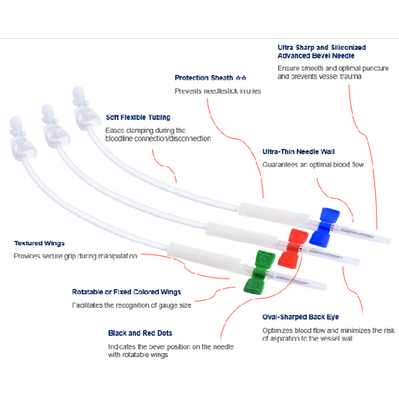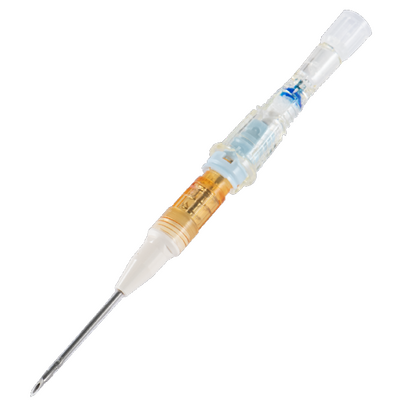Vasc-Alert™
Remote vascular access surveillance
Vasc-Alert™ is a unique vascular access surveillance programme for haemodialysis patients that gives care providers the ability to detect and respond to potential access complications before they arise. The programme works by analysing treatment data to derive the intra-access pressure at the arterial and venous needle sites.
When the pressure trend increases, it is an indication that stenosis may be growing. Weekly reports alert staff to potential issues, enabling them to quickly evaluate and intervene. Studies have shown that the early detection of vascular access stenotic lesions, followed by timely corrective procedures, reduces the thrombosis rate and prolongs access survival1.
It is widely held that monitoring for an elevation in venous line pressure, which increases as a stenosis develops, would have clear diagnostic value2.
Clinical Information:
Why Vasc-Alert™?
- Surveys every patient, every session
- Simple 10-0 Access Risk Score
- Weekly reports for effective triaging
- 82% early stenosis detection (UK Study)
- Payback in under four months
- CE-marked & FDA-approved software for early intervention in dialysis patients, preventing thrombosis
- 7.3% thrombosis vs. 10.2% standard (Eltahan, 2025)
- 30-40% thrombosis reduction (Kumbar, 2023)
- £268 cost savings/patient (Eltahan, 2025)
- Eltahan A.R., Pondor Z., Donne R.L., Poulikakos D.J., et al. (2025). Prospective Evaluation of Remote Software Based Surveillance Supplementing Clinical Monitoring for Hemodialysis Vascular Access. Nephron, 148:536–543. This 12‑month prospective study (UK, ≥140 patients across 5 HD units) found:
- Thrombosis rates: 7.3% with Vasc‑Alert vs 10.2% standard care
- Post‑intervention primary patency: significantly higher in Vasc‑Alert group (p < 0.001)
- Longer complication‑free days (p = 0.002)
- Cost savings: £1,600/patient (Vasc‑Alert) vs £1,868/patient (standard)
- Kumbar, L. (Henry Ford Hospital, Detroit) – Dr Lalathaksha Kumbar and colleagues published a study in Endovascular Today (Jan 2023), reporting that Vasc‑Alert–identified high‑risk patients were seven times more likely to have stenosis; the technology also reduced thrombosis by 30–40%
- Provenzano, R.D. (Ascension St. John Hospital, Detroit) – In the same Henry Ford–led study, Dr Robert Provenzano noted Vasc‑Alert's performance “even better than we anticipated” and emphasised its system‑wide cost–benefit
- Eltahan A.R. et al. (Northern Care Alliance NHS Foundation Trust, UK) – A 2024 Nephron study retrospectively evaluated Vasc‑Alert's risk score in 81 patients; it detected 64.7% of vascular events two months before occurrence and demonstrated sensitivity/specificity of ~65%/67%
"Improved early detection, higher patency rates, and greater complication free days vs. standard care"

